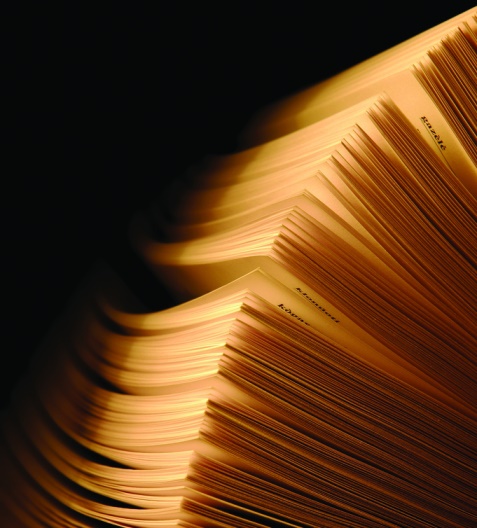This post was co-written by Dr Martin Eve, senior lecturer in Literature, Technology and Publishing and Dr Caroline Edwards, lecturer in Modern and Contemporary Literature at Birkbeck’s Department of English and Humanities. It was originally posted on the Open Library of Humanities blog on Monday 28 September.
In 1987, the late Terence Hawkes wrote, in the inaugural issue of Textual Practice, that
It is never a good time to start a new journal. Even so, 1987 seems unpropitious to a remarkable degree. The academic world in general feels itself to be under attack. The Humanities in particular feel marginalized and underfunded. Outwardly querulous, inwardly riven, they sense themselves to be hopelessly at odds with a culture which has long abandoned any recognition of the value of their role. Connoisseurs of the Unripe Time could be forgiven for regarding the present year as a vintage one, with the project represented by Textual Practice self-evidently foredoomed.1
 Hawkes’s major contentions about 1987 still ring true for most in the academic humanities. Remaining on the front-line of budget cuts and continually resorting to liberal humanist defences of critical thought in a democracy, our times remain unripe and feel precarious.
Hawkes’s major contentions about 1987 still ring true for most in the academic humanities. Remaining on the front-line of budget cuts and continually resorting to liberal humanist defences of critical thought in a democracy, our times remain unripe and feel precarious.
In some ways, however, 2015 is worse than 1987 for those seeking to “start a new journal”. The traditional foundations of the research-publication economy are unravelling in the face of unprecedented digital capability and concomitant social expectations. Ironically, in the age of digital reproduction the circulation of our academic humanities journals is decreasing (because our libraries cannot afford to subscribe in the face of an increasing volume of published material and hyper-inflationary journal price increases), even while we have the technological capacity to disseminate and preserve our work online. Meanwhile, the benefits of open access to the humanities disciplines are clear. Unless we extend access to our work to broader publics, our claims to engender critical thinking in the demos are ill founded.
As with most dreams of universal education, though, there has often been staunch resistance in the humanities to open access. One of the principle reasons for this is that the economic models that are being implemented by traditional publishers are uniquely unsuited to our disciplinary areas. Article processing charges (APCs), in which authors or their institutions are asked to bear the entire labour costs (and any profit/surplus) of a publisher, become unaffordable in the humanities disciplines, as opposed to in our counterpart fields in the natural sciences where the model may work. The diversion of scant humanities funding to compensate lost profits for journal publishers undermines the claimed meritocratic nature of academic publishing as well as damaging the career prospects of those without recourse to such funding.
It was within this context that the Open Library of Humanities was born. It has taken two and a half years of planning; a great deal of consultation with academics, libraries and funders; the willing support of almost 100 libraries; many talks and publications; and a great deal of hard work. What we have so far is the seed of a scalable model for journal transition to open access in the humanities that does not rely on payment from authors or readers.
For this initial launch, six journals have moved from their existing homes to our new model: 19: Interdisciplinary Studies in the Long-Nineteenth Century; The Comics Grid; Orbit: Writing Around Pynchon; ASIANetwork Exchange; Studies in the Maternal; and The Journal of British and Irish Innovative Poetry. These publications span the range of journal types that the platform can support: those publications that are already open access but that rely on unsustainable volunteerist labour; those that are open access but that rely on unsustainable article process charges; and those that are currently subscription-based but that want to achieve open access. Applications are now open for other journals that wish to join the platform.
None of this would be possible without the support of the institutions that have already signed up to support the OLH. Indeed, the model that underpins the platform is novel for humanities journals: many libraries all paying relatively small sums into a central fund that we then use, across our journal base, to cover the labour costs of publication once material has passed peer review. Libraries that participate are given a governance stake in the admission of new journals. While this model is strange in many ways (as libraries are not really buying a subscription since the material is open access), it works out to be extremely cost effective for participants. In our first year, across the platform, we look set to publish around 150 articles. For our bigger supporting institutions, this is a cost of merely $6.50 per article. For our smallest partners, it comes to $3.33. This economy of charitable, not-for-profit publishing works well at 100 institutions. It should work even better with the 350 libraries that we are aiming to recruit to our subsidy scheme in the first 3 years after launch.
There are countless individuals whom we should thank for helping us to get this far but to do so would mean that we would inevitably offend by omission. We will, therefore, limit our thanks to four broad groups: to the trustees of our charitable organization for helping us to steer the project; to the staff at the Andrew W. Mellon Foundation for their advice and financial assistance in the form of a planning (2014) and then scaling (2015) grant; to the editors of the journals that have already joined us; and to the libraries who have made this possible through their financial support.
What is before you today is not, of course, the end product; it is just the start. While we have come a long way to create a new platform and economic model, challenges remain. Naysayers will doubtless continue to spill words from the sidelines. However, we are more interested in, and draw more inspiration from, the words of an arts and humanities charity in the United Kingdom. Arts Emergency’s mission is to ensure that those from disadvantaged backgrounds can also receive the benefits of an arts and humanities education; disciplines to which open access can make a substantial difference. The badge that Arts Emergency sends to their supporting members is emblazoned with the following text: “sometimes if you want something to exist you have to make it yourself”. No matter how unripe the time, these are words to remember.
Competing Interests
This is an editorial written by the directors of the Open Library of Humanities.
Notes
1Terence Hawkes, ‘Editorial’, Textual Practice, 1 (1987), 1–2 <http://dx.doi.org/10.1080/09502368708582003>.
References
- ^ Hawkes, T . (1987). Editorial. Textual Practice 1: 1–2, DOI: http://dx.doi.org/10.1080/09502368708582003
Find out more

